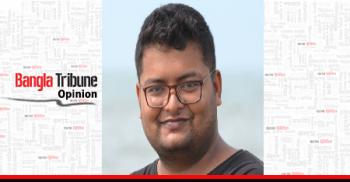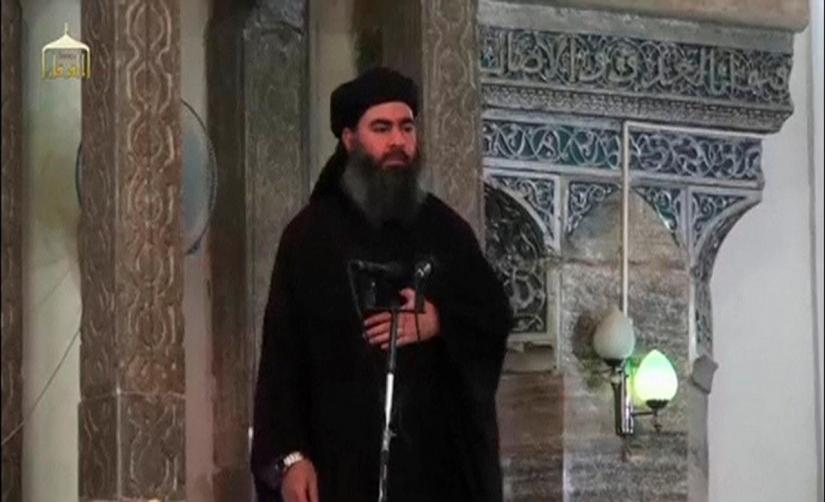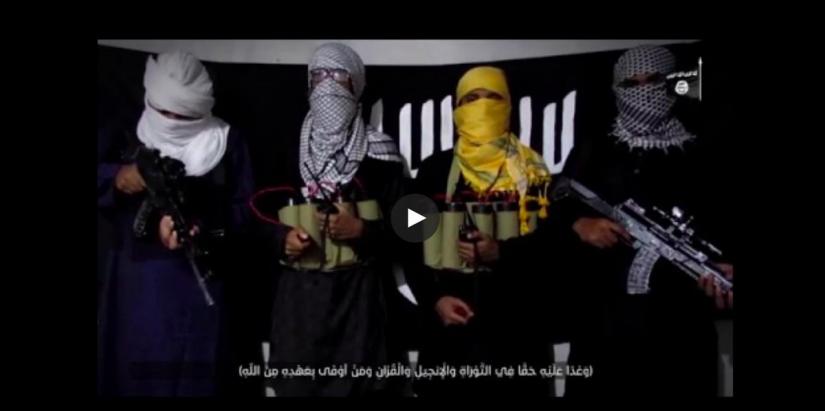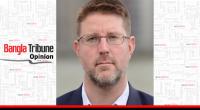 Abu Bakr al-Baghdadi, the 'caliph' of the Islamic State terror group, is dead. His death surely weakens the vilest terrorist group of modern history further. The way the world cheered the demise of al-Baghdadi was similar to the reaction of people when the former US President Barack Obama announced the death of Osama Bin Laden, the deceased leader of Al Qaeda. The question is: does it necessarily end the existence of this group?
Abu Bakr al-Baghdadi, the 'caliph' of the Islamic State terror group, is dead. His death surely weakens the vilest terrorist group of modern history further. The way the world cheered the demise of al-Baghdadi was similar to the reaction of people when the former US President Barack Obama announced the death of Osama Bin Laden, the deceased leader of Al Qaeda. The question is: does it necessarily end the existence of this group?
A big blow indeed, but it is not the end of the organization or especially the motives which have created and led to the creation of Islamic State, which are still very much there: Anger, negligence, exclusion especially over the Sunni population in Syria, Iraq and many other places around the region. Also, if the social conditions that led to the rise of IS are not addressed, it will lead to either the revitalization of IS or something much worse. They will remain active for many years to come.
It has already been weakened over the last two or three years with sustained American, the Western and regional offensive against its infrastructure, over those large swaths of lands in Iraq and Syria. If we are talking about the military operational level, it has been weakened a lot because it has been defeated in Syria and in Iraq to a great extent. They lost their capital Raqqa. They lost almost totally in 2017. They lost most of the territories they gained starting in 2013 or 2014.
 But, if we are talking about the intellectual/ideological narrative, it’s a completely different issue because the idea of the ISIS is very much alive as long as the motives as stated earlier which led to the rise of the organization are still very much there. A security-oriented approach is not the cure to the phenomenon of Islamic State. It is important to deal with it in a different way. For instance, don’t forget that Syria harbours a whole camp where children and women of IS are held without schools, services and without any sort of supervision. If Syria fails to deal with this camp and many other such places that have been left abandoned after the defeat of IS, we are going to see more people getting recruited. Truth to be told: these kids who are aged between 10-12 years now, within 5-6 years will grow up and become a very important pool of recruitment for IS.
But, if we are talking about the intellectual/ideological narrative, it’s a completely different issue because the idea of the ISIS is very much alive as long as the motives as stated earlier which led to the rise of the organization are still very much there. A security-oriented approach is not the cure to the phenomenon of Islamic State. It is important to deal with it in a different way. For instance, don’t forget that Syria harbours a whole camp where children and women of IS are held without schools, services and without any sort of supervision. If Syria fails to deal with this camp and many other such places that have been left abandoned after the defeat of IS, we are going to see more people getting recruited. Truth to be told: these kids who are aged between 10-12 years now, within 5-6 years will grow up and become a very important pool of recruitment for IS.
 With the killing of its leader, one of its more important leaders certainly the Islamic State as we’ve known it no longer exists; probably a new Islamic State 2.0 is already emerging out of the destruction of its Caliphate. We’ll probably look more on the model of Al-Qaeda than on the model of a Caliphate where it just takes control of a piece of land and declares a new regime.
With the killing of its leader, one of its more important leaders certainly the Islamic State as we’ve known it no longer exists; probably a new Islamic State 2.0 is already emerging out of the destruction of its Caliphate. We’ll probably look more on the model of Al-Qaeda than on the model of a Caliphate where it just takes control of a piece of land and declares a new regime.
We’re going to see more of the Islamic State is as they say in Security Studies Segmented Polycentric ideologically networked groups meaning they will be separate, diverse and geographically in different areas in urban or non-urban. And, they will declare themselves to be that group. They don’t have to be hierarchically answering to someone in a specific place. They could be doing their own business but they will be calling themselves, branding themselves as an Islamic State very much like we’ve seen Al-Qaeda do over the last 20 years.
If you have the Syrian regime taking control back of most of the territories without changing its approach which led to the rise of the IS, the resentment will remain. And resentment is the major issue. Without dealing with it, it is not possible to deal with the IS on an ideological level.
Md. Sharif Hasan is a faculty at the Department of International Relations, University of Rajshahi.


